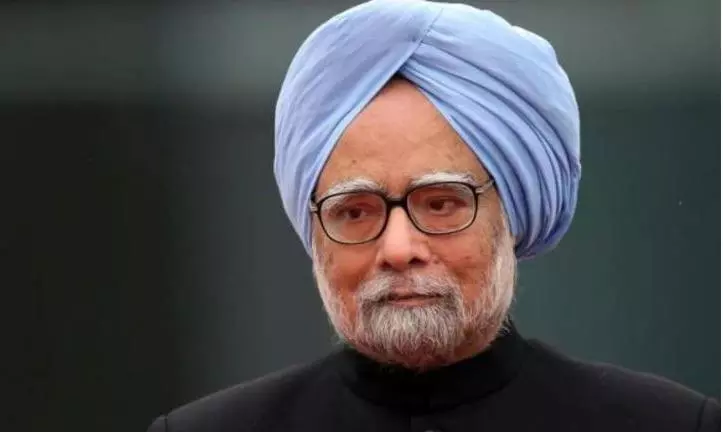
Former Prime Minister Dr Manmohan Singh passes away
Singh, prime minister for two terms in the Congress-led UPA government from 2004 to 2014, had been in poor health for the last few months.

Former Prime Minister Manmohan Singh passed away in New Delhi on Thursday (December 26).
Singh's death was announced by the All India Institute of Medical Sciences, Delhi, where he was admitted to the Emergency ward around 8.30 PM in a critical condition.
Singh, prime minister for two terms in the Congress-led UPA government from 2004 to 2014, had been in poor health for the last few months.
He is survived by wife Gurcharan Singh and three daughters.
India mourns the loss of one of its most distinguished leaders, Dr. Manmohan Singh Ji. Rising from humble origins, he rose to become a respected economist. He served in various government positions as well, including as Finance Minister, leaving a strong imprint on our economic… pic.twitter.com/clW00Yv6oP
— Narendra Modi (@narendramodi) December 26, 2024
Sonia, Priyanka rush to hospital
Congress leader Priyanka Gandhi Vadra and her mother Sonia Gandhi reached the hospital as soon as the news of his hospitalisation became known.
Singh, who was finance minister under the then prime minister P V Narasimha Rao, was the architect and the brainchild of economic reforms in 1991 that pulled India from the brink of bankruptcy and ushered in an era of economic liberalisation that is widely believed to have changed the course of India's economic trajectory.
Singh died as the Congress party concluded its Congress Working Committee meeting at Belagavi in Karnataka, where all top party leaders were present.
It is believed that party chief Mallikarjun Kharge and Rahul Gandhi are on their way to Delhi from Belagavi.
Widely respected for his intellect, humility, and integrity, he played a pivotal role in shaping India’s economic trajectory, earning recognition as one of the architects of modern India.
First Sikh PM
In 2004, Singh became India’s first Sikh Prime Minister, leading the United Progressive Alliance (UPA) government. His tenure was marked by significant initiatives, including the Mahatma Gandhi National Rural Employment Guarantee Act (MGNREGA), the Right to Information Act, and the Indo-US Civil Nuclear Agreement.
Singh’s academic journey is marked by excellence. He completed his Bachelor’s and Master’s degrees in Economics from Panjab University before earning a first-class honors degree from the University of Cambridge in 1957. He later obtained a DPhil in Economics from the University of Oxford.
Distinguished career
Before entering active politics, Singh had a distinguished career in academia and public service. He worked with the United Nations and held key positions in India, including Chief Economic Advisor, Governor of the Reserve Bank of India, and Chairman of the Planning Commission.

